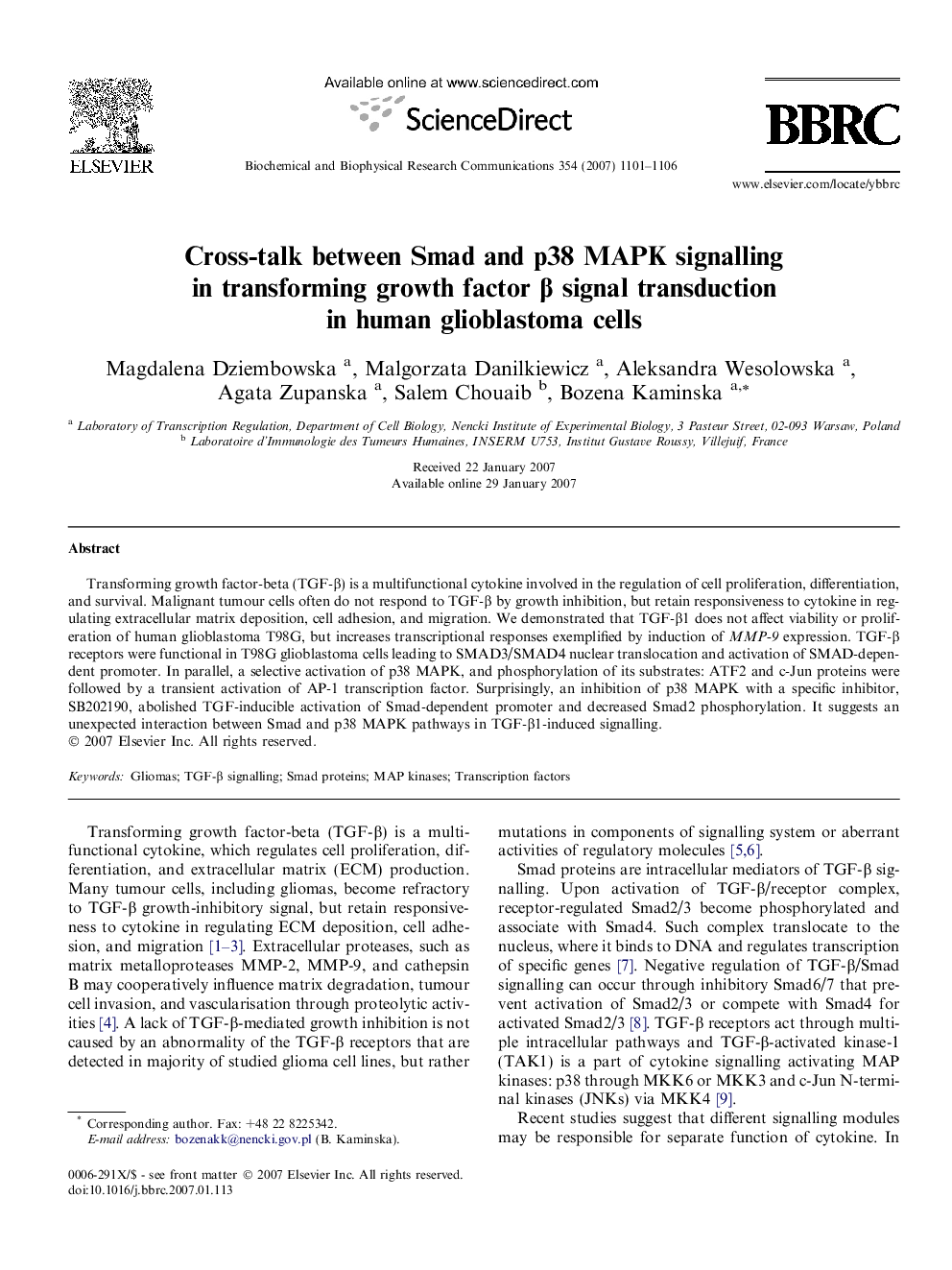| Article ID | Journal | Published Year | Pages | File Type |
|---|---|---|---|---|
| 10767541 | Biochemical and Biophysical Research Communications | 2007 | 6 Pages |
Abstract
Transforming growth factor-beta (TGF-β) is a multifunctional cytokine involved in the regulation of cell proliferation, differentiation, and survival. Malignant tumour cells often do not respond to TGF-β by growth inhibition, but retain responsiveness to cytokine in regulating extracellular matrix deposition, cell adhesion, and migration. We demonstrated that TGF-β1 does not affect viability or proliferation of human glioblastoma T98G, but increases transcriptional responses exemplified by induction of MMP-9 expression. TGF-β receptors were functional in T98G glioblastoma cells leading to SMAD3/SMAD4 nuclear translocation and activation of SMAD-dependent promoter. In parallel, a selective activation of p38 MAPK, and phosphorylation of its substrates: ATF2 and c-Jun proteins were followed by a transient activation of AP-1 transcription factor. Surprisingly, an inhibition of p38 MAPK with a specific inhibitor, SB202190, abolished TGF-inducible activation of Smad-dependent promoter and decreased Smad2 phosphorylation. It suggests an unexpected interaction between Smad and p38 MAPK pathways in TGF-β1-induced signalling.
Related Topics
Life Sciences
Biochemistry, Genetics and Molecular Biology
Biochemistry
Authors
Magdalena Dziembowska, Malgorzata Danilkiewicz, Aleksandra Wesolowska, Agata Zupanska, Salem Chouaib, Bozena Kaminska,
